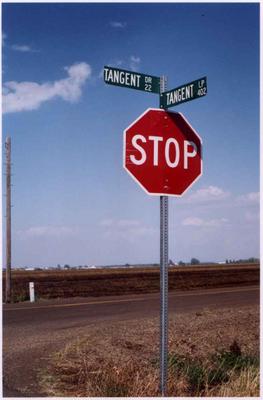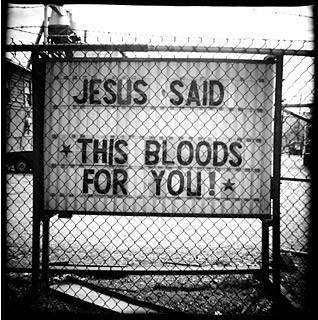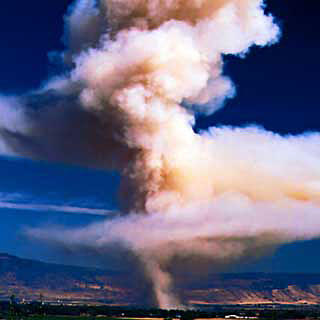driven (away)
So, as a way of motivating myself, I will begin a short description of project in beginning stages and ask for input/volunteers.
I've always been obsessed with child/girl abductions. Not only as an intellectual of sociological oddity. The reasons are numerous and shared by many: the news coverage of which little girls/women get covered by the media; how the mania surrounding abductions is overblown and used to police societal norms of behavior; the way in which women's bodies are reviled and worshipped through the attention paid to the goriest details of their demise. But it's also fascinating on a more emotional and instinct level (that is to say prior to conscience thought not inherently animalistic, not natural).
This began for me when I was wee. Walking on rural country roads, whenever a car would slow behind me I would play out the scenario in my admittedly exagerated imagination. The grab, the blindfolded car ride in the old-person car (a lincoln or a cadallac), the mocking voice of the elderly man, the un-articulated violation, death in some remote location. This would lead me to an elaborate choreographing of my episode of Unsolved Mystery. I wasted many minutes selecting the sequence of events, the settings of my family's interviews, selecting my witnesses (always my second-grade teacher idol and crush), and planning my "update" (Man caught. . . mob attacks to seek revenge). All of this for a car that was slowing to pass a lone child walking on a country road with no sidewalk. They would pass to my left and I would let out a sigh of relief. But also sadness. I had eluded a violent rape and death -- but I also was not chosen for fame and sainthood. It was clear to me at a small age that stardom came in very few ways for girls -- and the best way to remain good and loved was probably to be kidnapped.

sidenote: might the man I imagined driving that Lincoln and the man I imagined narrating the story of my life be one and the same? Was it designed that way? Because really, wasn't Robert Stack's low warble the voice you would expect to come from the dark places? Wasn't he always lurking around alleyways and cemetaries -- not always in an innocent fashion. He was a Bundy-esque host if there ever was one, seeming to take delight in the horror filled redramatizations he staged. He was always the position of power -- the older man eternally plays the perpetrator/savior. That's the risk for girls when it comes to men, non?
Most women I know of a certain age -- gen x and younger -- grew up with some kind of awareness of abduction/murder. For me, it was the dramatic interpretation of something more mundane and almost inescapable -- molestation/sexual assault. Because so many of my family members were subject to sexual abuse, my mother taught us about it at quite a young age as a means to help us avoid it. So I knew very early on about the abuse my aunt's suffered at the hands of a family friend, my cousins defiling, my mother's brushes with abuse. I heard stories of my great-grandfathers, my great-uncles, my cousins -- what they had done, who to avoid at the family reunion, to scream if you ever found yourself alone with such-and-such. But these were also men that played frisbee with us, that wandered the streets and our backyards free of confines, smiling, friendly even. It was a strange and early lesson I learned -- this is your family and they can hurt you. It also breeded a sense of the world as strange and mistrustful. You may learn in the car ride home what your new favorite uncle did to your mother's cousin when they were young. The men on TV and the newspaper -- men who were monsters, demons, who were reviled and documented -- they were not so far from the men who grilled your hot dog, who did cannonballs into the pool.
Of course there is something morbid, something depraved of looking at it this way. It's a child's take on the matter -- but also a straightforward one. There has been much discussion in feminist circles about rape culture in general. While I totally endorse much of the thinking revolving around theories of rape culture -- that a patriarchal society that devalues women leads to a place where their bodies are subject to violence -- it's also important to note the ways in which the specter of rape is used to maintain women as helpless victims. Angela Davis did an amazing job of documenting the ways in which the black rapist is used to continue racist ideology in "Rape, Racism, and the Myth of the Black Rapist".
I am acutely aware of the ways in which my fear of abduction and rape as a child were tied to real problems and legitimate concerns, but also the ways in which they are used to socialize young girls. They are used to limit, to quiet, to keep you home. Those stories and that awareness, for me, mark one of the most critical differences in growing up male and female in the U.S. The well-documented loss of confidence that young women experience in their early adolescence seems directly linked to their growing awareness of their bodies as sites of attention and violence. I don't think many ten year old boys, finding themselves playing past dark, immediately flash to their own sexual demise. But most girls I know, at very young ages, are aware of this possibility -- even if they are unable to articulate it as such.
It is this strange phenomenon -- and it's paradoxical solutions (second-wave feminism having pushed for more awareness of sexual violence, the growing awareness of sexual violence having psychological effect on women and girls, etc) that fascinates me the most. My plan for the next six months is to chronical this in a concerted fashion (which might mean me digging through the numerous articles, clippings, and mental notes I've collected over the years) and to gather stories from other women and girls. So this post will serve as the opening for another blog -- abduction season.
Of course the chronically of media fascination with young white women's kidnappings is of interest, but I don't mean this to be a place where who is missing is chronicled. I want to know what it means to be missing and what it means to fear being taken -- in all its metaphorical manifestations. Consider this an open invitation for your stories.
The final form of this project is open ended. The blog, of course, is an end unto itself. But hopefully it'll be something slightly more concrete. Perhaps nothing more than a good series of stories or a small zine. Then again, perhaps I'll solve the mystery.
















